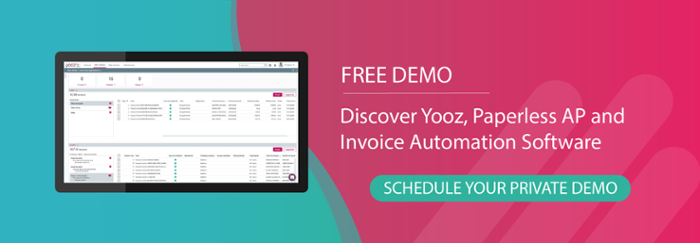Are you ready to modernize your accounting processes? Is your organization ready to improve cash flow monitoring and financial reporting? If so, welcome to the world of cloud accounting software - a game-changing solution for your organization's financial performance.
Cloud accounting software is designed to give businesses of all sizes an edge in the modern, tech-driven world. With improved cash flow monitoring, streamlined reporting, and enhanced security, it's a game-changing solution for financial management.
Whether you're a seasoned executive or a startup entrepreneur, embracing cloud accounting software and leveraging the abilities of cloud computing can transform the way your organization handles finances. It’s time to leave behind outdated desktop software and step into a future where real-time financial management, accuracy, and security work together seamlessly.

What is Cloud Accounting Software?
Cloud accounting software is a powerful online tool that enables businesses to manage financial data securely via the cloud, offering real-time updates accessible from anywhere. Unlike traditional desktop-bound software, cloud-based solutions are hosted on remote servers, allowing seamless remote access to financial information anytime, from any device with an internet connection.
By automating tasks like invoicing, expense tracking, and even inventory management, cloud accounting enhances efficiency while integrating effortlessly with other business systems for a scalable, collaborative solution. With financial data securely stored and processed in a centralized cloud location, businesses can streamline operations, improve accessibility, and make informed decisions with just the touch of a button.
The Rise of Cloud Accounting Software
The shift to cloud-based solutions is not just a trend, its driven by advancements in cloud computing technology that make it a necessary evolution across industries. The online accounting software market is projected to grow significantly over the next decade, expanding from $4.8 billion in 2024 to $12.89 billion by 2033. With its ability to integrate seamlessly with Accounts Payable (AP) systems and empower real-time financial tracking, cloud accounting software is now an indispensable tool for any forward-thinking business.

What Sets Cloud-Based Accounting Apart?
Cloud accounting offers numerous benefits over traditional software, making it a smart choice for businesses looking to stay ahead of the competition.
1. Accessibility
Cloud computing technology accounting software allows financial teams to access data and perform accounting tasks from anywhere. Whether at the office, at home, or on the go, this flexibility enhances collaboration and decision-making. With everything stored in the cloud, there's no need to worry about carrying physical documents or accessing different versions of files from various locations.
This accessibility is particularly beneficial for businesses with multiple locations, remote employees, or those collaborating with accounting firms and stakeholders. By providing a centralized platform, cloud-based accounting software fosters seamless collaboration and efficient workflows, making it an ideal solution for modern businesses.
- Do you have to go into the office to view or approve documents? How fast can you switch approvers now if necessary?
2. Security and Data Protection
Security is a top concern for businesses of all sizes. Cloud accounting software offers enhanced security features like end-to-end encryption and detailed audit trails that ensure your sensitive financial data remains protected. This level of security is far superior to traditional desktop-based systems and reduces the risks associated with data breaches or cyberattacks. In addition, any changes to the software are thoroughly tracked in a detailed activity log, forming a detailed digital audit trail.
- How often do you experience data breaches or cyber security attacks?
3. Real-Time Insights
The best cloud accounting software provides real-time updates, giving you instant access to key financial metrics and cash flow.This enables businesses to make faster, data-driven decisions, improving both short-term and long-term financial planning. By eliminating manual processes, businesses can focus on strategic growth instead of wasting time on bookkeeping.
- Are you spending too much time gathering material or creating reports? Trying to find the answer for vendors?
4. Greater Efficiency
Cloud accounting software automates repetitive tasks like data entry, invoice processing, and reconciliations, reducing human error and saving time. In addition, automated reconciliations ensure that transactions from accounts are accurately recorded and matched, further reducing manual effort.
The automation ensures that your financial data is always up-to-date, accurate, and ready for decision-making. It also frees up your team to focus on higher-value tasks like financial analysis and strategic planning.
- Are your current processes time-consuming and tedious? Do you spend a lot of time researching errors?
5. Cost-Effective Scalability
 Cloud accounting is often more affordable than on-premises solutions. With SaaS pricing models, businesses pay for what they use, ensuring cost efficiency. Additionally, cloud solutions scale with your business. Whether you're a small startup or a large corporation, cloud accounting can grow with you, making it an ideal solution for organizations of any size.
Cloud accounting is often more affordable than on-premises solutions. With SaaS pricing models, businesses pay for what they use, ensuring cost efficiency. Additionally, cloud solutions scale with your business. Whether you're a small startup or a large corporation, cloud accounting can grow with you, making it an ideal solution for organizations of any size.
- Are you planning to grow but don't know how much or when?
Key Benefits of Cloud Accounting Software
Making the switch to cloud accounting software brings a host of advantages. Here are some of the key benefits:
-
Enhanced Security: With encrypted data storage and multi-factor authentication, cloud accounting software provides a higher level of protection than traditional methods.
-
Unmatched Accessibility: Access your financial data from anywhere, allowing for greater collaboration and efficiency, especially for businesses with remote or global teams.
-
Increased Accuracy: Automation reduces human error, and built-in checks and balances ensure data integrity, making your accounting processes more accurate and reliable.
-
Improved Cash Flow Management: Cloud accounting offers real-time visibility into cash flow, enabling faster, more informed decision-making to optimize your financial health.
-
Eco-Friendly: By digitizing your accounting processes, cloud accounting reduces paper use and minimizes your environmental impact, aligning with sustainability goals. For businesses committed to reducing their environmental impact, cloud-based accounting provides a sustainable solution that aligns with modern corporate responsibility initiatives.
-
Comprehensive Financial Statements: Cloud accounting software allows you to generate detailed financial statements with ease, providing a clear view of your business’s financial health.
The contribution can be enormous. One Yooz customer stated that cloud-based AP automation allowed them to save the company an estimated 3,000,000 sheets of paper annually, or 1,000 trees over a three year period (you can read the success story here).
Cloud Accounting Versus Traditional Accounting Software
Cloud and traditional accounting software differ significantly in accessibility, hosting, and maintenance. Traditional accounting software is installed on local computers or servers, requiring manual updates and ongoing maintenance. This often demands a dedicated IT team, adding to both time and costs.

Furthermore, traditional software requires manual updates and IT oversight, increasing costs and disrupting operations. It also lacks real-time data access and collaboration features, making it less efficient for modern business needs.
Cloud-based accounting software, on the other hand, is hosted remotely and accessed via the internet, allowing users to manage financial data anytime, anywhere, through web browsers or dedicated apps. This flexibility is especially valuable for businesses with remote teams or multiple locations, improving collaboration and ensuring real-time data access.
A major advantage of cloud accounting software is its subscription-based model and easy scalability, which eliminates large upfront costs for hardware, licenses, and IT infrastructure. Automatic updates ensure businesses always have the latest features, bug fixes, and security patches without manual intervention, reducing IT burdens and minimizing disruptions.
Cloud accounting software offers superior accessibility, cost efficiency, and ease of maintenance, enabling businesses to streamline financial processes, reduce operational challenges, and stay current with real-time data. By leveraging cloud-based solutions, businesses can eliminate IT burdens, ensuring they are always working with the most current financial data, making it the smarter choice for modern financial management compared to traditional accounting software.
How Cloud-Based Accounting Empowers Financial Management
Cloud accounting software isn't just about efficiency, it also plays a crucial role in improving your business’s cash flow management. With real-time financial reports and automated invoice tracking, it provides businesses with the insights needed to make well-informed data-driven decisions and optimize expenditures.
Cloud-based software also delivers comprehensive insights while providing cost-saving benefits such as:
1. Streamlined Infrastructure
By migrating to cloud computing, businesses can save on expensive hardware, software maintenance, and data storage costs. Cloud accounting reduces the need for physical infrastructure and capital expenses, while offering a more secure, scalable solution. This can result in notable savings on capital expenses.
2. Efficiency and Workforce Optimization
Automation of manual tasks like reconciliations and invoice processing minimizes labor costs, allowing your team to focus on strategic initiatives and growth.
3. Collaboration
Cloud-based solutions enhance collaboration between departments by providing real-time access to financial data, enabling seamless coordination between finance, operations, and leadership teams.
4. Cost-Savings
By reducing the need for physical storage and manual intervention, cloud accounting lowers overhead expenses and improves cost efficiency, all while maintaining higher levels of accuracy and control.
5. Reduced Errors and Associated Costs
Manual data entry in traditional accounting systems increases the possibility of errors occurring, leading to potential financial setbacks and corrective expenses. Cloud accounting software significantly lowers the number of errors, resulting in substantial time and cost savings and, therefore, improved financial accuracy.
An Affordable and Scalable Solution
Cloud accounting software offers a more cost-effective alternative to on-premises. Software-as-a-Service (SaaS) models, for example, operate on a subscription-based structure. This allows organizations to pay for the services that they need yet have the flexibility to scale up or down based on evolving requirements. This ensures that businesses pay only for what they use, maximizing cost efficiency.
Addressing Common Challenges of Online Accounting Software
While the benefits of cloud accounting software are clear, it’s important to consider and address some common challenges:
1. User Adoption
Transitioning from traditional accounting systems can be a learning curve for some users. Providing training, onboarding resources, and ongoing support is key to smooth adoption.
2. Security Concerns
As cloud systems rely on internet connectivity, businesses must ensure strong security measures are in place. Regular audits, encryption, and multi-factor authentication are essential for protecting financial data and also help to instill trust in users.
3. Managing Expenses
Inadequate planning can quickly lead to unexpected cloud-related expenses. To avoid this, businesses should carefully assess their needs and choose the right pricing plans that align with their requirements. Fortunately, many cloud-based platforms are easily scalable both up and down so this should be an easy challenge to overcome.
4. Integration with Existing Systems
Many businesses use Enterprise Resource Planning (ERP) software or other financial tools. Ensuring seamless integration between cloud accounting systems and these tools is crucial for a smooth transition.
5. Implementation Strategy
Data migration to the cloud can be a complex process unless handled correctly. Vendors should offer phased implementation plans, allowing users to migrate their data gradually and minimize any disruptions to their operations. Partnering with experienced vendors can also ensure a successful migration process.
6. Compliance
Staying up to date with local and global regulations can be challenging. Cloud accounting providers should have compliance features built into their platforms, ensuring businesses remain compliant with e-invoicing and tax regulations.
7. Streamlining Multi-Cloud Management
For enterprises using multiple cloud computing environments, management can become complex and lead to increased architectural complexity and complex recovery (yet according to Virtana Research's The State of Multi-Cloud Management 2022 more than 80% of enterprises have a multi-cloud strategy and 78% are using more than three public clouds).
Vendors should offer solutions to streamline multi-cloud management, reducing conflicting vendor issues and architectural complexities. Disaster recovery strategies should be well documented and easy to implement.
8. Internet Connectivity
Since cloud-based accounting software relies on internet access, a reliable and stable internet connection is essential for success. Businesses should ensure that they have redundant (and secure) internet connections as well as backup plans in case of connectivity issues.
By addressing these common challenges, businesses can optimize their use of cloud accounting software and enjoy its full range of benefits. Of course, collaborating with knowledgeable and responsive vendors can also play a crucial role in overcoming these obstacles.
Is Cloud Accounting Right for Your Business?
If you’re still using desktop accounting software, it might be time to explore the world of cloud accounting. Whether you’re managing vendor payments, improving cash flow, or enhancing your overall financial reporting, cloud accounting software offers numerous advantages.
Are you ready to make the leap into cloud-based accounting? With integrated ERP solutions and a suite of features designed to improve productivity, security, and financial visibility, cloud accounting can take your financial management to the next level.
How to Choose the Right Cloud Accounting Software for Your Business
With so many cloud accounting solutions on the market, selecting the best fit for your business can be challenging. Here are key factors to consider:
1. Scalability
Choose software that can grow with your business. Ensure it offers flexible pricing and features that can accommodate your future needs.
2. Integration Capabilities
The ideal solution should seamlessly integrate with your existing ERP, AP automation, and banking systems to streamline workflows.
3. User-Friendly Interface
A simple, intuitive platform ensures a smooth onboarding experience for your finance team and minimizes the learning curve.
4. Security & Compliance
Look for advanced security features like multi-factor authentication, encryption, and compliance with global industry regulations.
5. Automation & AI Features
Software that includes AI-powered automation for invoice processing, reconciliation, and reporting can significantly enhance efficiency.
6. Customer Support & Training
Reliable customer support and access to training resources can help your team get the most out of the software.
7. Inventory Management
For businesses that handle goods, robust inventory management features are essential. Look for software that integrates with popular accounting systems and automates stock, order, and fulfillment processes to enhance efficiency.
By considering these factors, businesses can confidently choose a cloud accounting solution that meets their needs and drives long-term financial success.
Why Yooz?
At Yooz, we’ve designed user-friendly automation solutions to simplify your accounting and cash flow management. With just a click, our intuitive platform provides the support you need to achieve your goals while maximizing efficiency and accuracy. As the AP automation platform of choice, Yooz harnesses industry-leading AI and machine learning to accelerate invoice processing, eliminate manual tasks, and strengthen fraud protection. Seamlessly integrating with over 250 financial systems, Yooz delivers real-time visibility, scalability, and cost savings, empowering businesses to take full control of their AP processes with ease.
Contact us today to learn more or request a demo.
FAQs
What is cloud accounting software, and how does it differ from traditional accounting software?
Cloud accounting software is an online financial management tool that allows businesses to access and manage their accounting data from anywhere. Unlike traditional desktop software, it offers real-time updates, automated processes, and seamless collaboration without relying on on-premises infrastructure.
How secure is cloud accounting software?
Cloud accounting software employs advanced security measures like data encryption, multi-factor authentication, and automatic backups to safeguard financial information. It often provides stronger protection than traditional systems by minimizing the risk of data loss or unauthorized access.
Can cloud accounting software integrate with existing ERP and banking systems?
Yes, most cloud accounting solutions offer integrations with ERP systems, banks, and other financial tools through APIs, ensuring seamless data exchange and automation of financial processes.
What are the benefits of using cloud accounting software for small businesses?
Small businesses benefit from cost savings, improved accuracy, real-time financial insights, enhanced collaboration, and automation of routine tasks, allowing them to focus on growth rather than manual accounting processes.
How can cloud accounting software improve cash flow management and financial reporting?
Cloud accounting provides real-time financial visibility, helping businesses track cash flow, generate instant reports, and make data-driven decisions. Automation reduces errors and ensures timely payments, improving overall financial health







